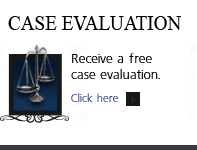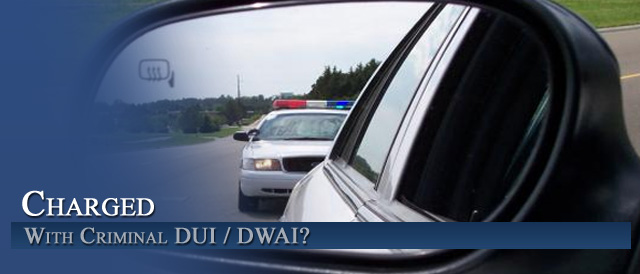
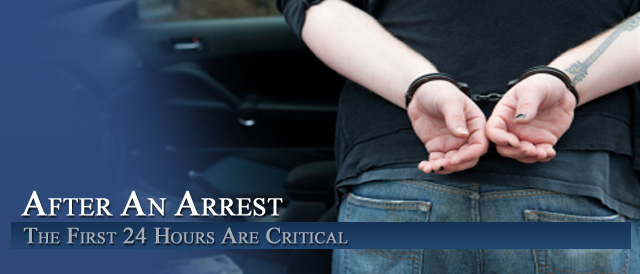
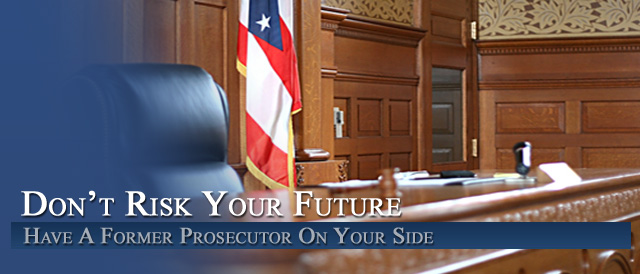
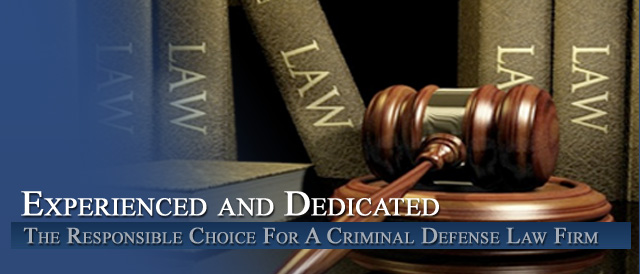
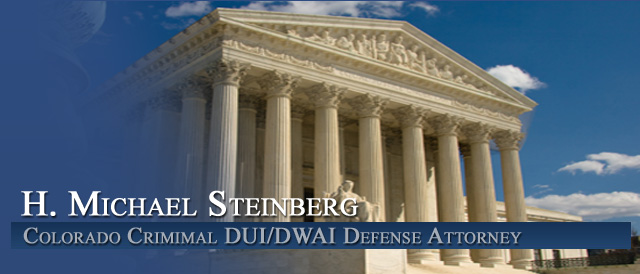
Colorado Criminal Law – Q and A – Colorado Texting And Driving Law – C.R.S. 42-4-239 – UPDATED 2017
By H. Michael Steinberg – Colorado DUI – DWAI-DUID Criminal Defense Lawyer
Colorado Criminal Law – Q and A – Colorado Texting And Driving Law -Recently in North Dakota – a woman was charged with vehicular homicide after her car slammed into an 89 year old woman. The woman admitted she was using Facebook on her cell phone and sending texts at the time she struck the victim.
She was driving 85 mph on the highway at the time. She never braked. There were no skid marks prior to impact.
Drivers who text while they drive are 23 times more likely to get into an accident.
What Follows Is The 2017 Update – Modification Of Colorado’s Texting Law
§ 42-4-239. Misuse of a wireless telephone – definitions – penalty – preemption
| (2) | A person under eighteen years of age shall not use a wireless telephone while operating a motor vehicle. This subsection (2) does not apply to acts specified in subsection (3) of this section. |
| (3) | A person shall not use a wireless telephone for the purpose of engaging in text messaging or other similar forms of manual data entry or transmission while operating a motor vehicle. |
| (4) | Subsection (2) or (3) of this section shall not apply to a person who is using the wireless telephone:
|
| (5) |
|
| (5.5) |
|
| (6) |
|
| (7) | The provisions of this section shall not be construed to authorize the seizure and forfeiture of a wireless telephone, unless otherwise provided by law. |
| (8) | This section does not restrict operation of an amateur radio station by a person who holds a valid amateur radio operator license issued by the federal communications commission. |
| (9) | The general assembly finds and declares that use of wireless telephones in motor vehicles is a matter of statewide concern. |
Cite as C.R.S. § 42-4-239
History. Amended by 2017 Ch. 279, §1, eff. 6/1/2017.
L. 2005: Entire section added, p. 267, § 1, effective August 8. L. 2009: Entire section amended, (HB09-1094), ch. 375, p. 2043, §1, effective December 1.
The Old Law:
What Is The Colorado Criminal Law On Texting While Driving?
Colorado’s texting law dfferes from many other states in several significant ways.
Here is the law:
C.R.S. 42-4-239. Misuse of a wireless telephone – definitions – penalty – preemption
(1) As used in this section, unless the context otherwise requires:
(a) “Emergency” means a situation in which a person:
(I) Has reason to fear for such person’s life or safety or believes that a criminal act may be perpetrated against such person or another person, requiring the use of a wireless telephone while the car is moving; or
(II) Reports a fire, a traffic accident in which one or more injuries are apparent, a serious road hazard, a medical or hazardous materials emergency, or a person who is driving in a reckless, careless, or otherwise unsafe manner.
(b) “Operating a motor vehicle” means driving a motor vehicle on a public highway, but “operating a motor vehicle” shall not mean maintaining the instruments of control while the motor vehicle is at rest in a shoulder lane or lawfully parked.
(c) “Use” means talking on or listening to a wireless telephone or engaging the wireless telephone for text messaging or other similar forms of manual data entry or transmission.
(d) “Wireless telephone” means a telephone that operates without a physical, wireline connection to the provider’s equipment. The term includes, without limitation, cellular and mobile telephones.
(2) A person under eighteen years of age shall not use a wireless telephone while operating a motor vehicle.
(3) A person eighteen years of age or older shall not use a wireless telephone for the purpose of engaging in text messaging or other similar forms of manual data entry or transmission while operating a motor vehicle.
(4) Subsection (2) or (3) of this section shall not apply to a person who is using the wireless telephone:
(a) To contact a public safety entity; or
(b) During an emergency.
[HMS- Punishment Section– $50.00 fine plus a $6.00 surcharge for a First Offense $100.00 fine plus a $6.00 surcharge for a Second Offense]
(5) (a) A person who operates a motor vehicle in violation of subsection (2) or (3) of this section commits a class A traffic infraction as defined in section 42-4-1701 (3), and the court or the department of revenue shall assess a fine of fifty dollars.
(b) A second or subsequent violation of subsection (2) or (3) of this section shall be a class A traffic infraction as defined in section 42-4-1701 (3), and the court or the department of revenue shall assess a fine of one hundred dollars.
(6) (a) An operator of a motor vehicle shall not be cited for a violation of subsection (2) of this section unless the operator was under eighteen years of age and a law enforcement officer saw the operator use, as defined in paragraph (c) of subsection (1) of this section, a wireless telephone.
(b) An operator of a motor vehicle shall not be cited for a violation of subsection (3) of this section unless the operator was eighteen years of age or older and a law enforcement officer saw the operator use a wireless telephone for the purpose of engaging in text messaging or other similar forms of manual data entry or transmission.
(7) The provisions of this section shall not be construed to authorize the seizure and forfeiture of a wireless telephone, unless otherwise provided by law.
(8) This section does not restrict operation of an amateur radio station by a person who holds a valid amateur radio operator license issued by the federal communications commission.
(9) The general assembly finds and declares that use of wireless telephones in motor vehicles is a matter of statewide concern
Why Colorado’s Cell Phone Texting While Driving Law Is Different
Drivers Under 18 – NO Cell Phone Use Of ANY Kind – Unless Emergency
It is illegal for young drivers in Colorado – (drivers younger than 18) to use cell phones (handheld or blue tooth type hands-free) while driving.
The exceptions for these under 18 drivers are:
reporting a fire
reporting a traffic accident in which one or more injuries are apparent
reporting a serious road hazard
reporting a medical or hazardous materials emergency
reporting a person who is driving in a reckless, careless, or otherwise unsafe manner.
ALL Colorado Drivers – No Texting While Driving
ALL Colorado drivers (except bus drivers) may NOT TEXT while driving unless there is an emergency.
The law defines a cell phone – as, “a telephone that operates without a physical, wire line connection to the provider’s equipment” and this includes cellular and mobile telephones.
Emergency is defined under this law as a moment in time when the person texting: “has reason to fear for such person’s life or safety or believes that a criminal act may be perpetrated against such person or another person”
[Or] is someone who is reporting: “a fire, a traffic accident in which one or more injuries are apparent, a serious road hazard, a medical or hazardous materials emergency, or a person who is driving in a reckless, careless, or otherwise unsafe manner.”The Police MUST SEE The Texting Happening To Make AN Arrest
One of the requirements of the law is the police officer has to personally witness the act of texting before the crime can be proven.
BUT – as opposed to a “secondary traffic crime” law – such as a seatbelt violation – the driving while texting law is a ” primary traffic crime law” which means a law enforcement officer has the right to actually stop your vehicle for THAT crime. Specifically, the police can see you texting without the need for another crime to have occurred as a basis for stopping your car.
Texting While Driving Law – In Effect Since December of 2009
The law – now 3 about four years old – essentially makes texting on your phone while driving a crime. “Texting” includes – text messages, emails, and tweets and it does not matter that you are at a light when you are doing it.
Law enforcement admits that it is hard to enforce the law. When stopped – the defense of “I was checking my emails – I was not texting” is common and few tickets are written without more than one witness.
Summary – Colorado Criminal Law – Q and A – Colorado Texting And Driving Law – C.R.S. 42-4-239
Minor Colorado Drivers. Under 18 – no cell phone use of any kind while driving which includes phone calls, text messaging, or similar forms of manual data entry and transmission.
Adult Colorado Drivers. Adult drivers are – no text-messaging or similar forms of transmission, while behind the wheel. Typical other cell phone use for voice calls is allowed.
Exceptions.
Both may use a device for phone calls or sending or receiving text message to contact a public safety emergency or during an emergency. (An emergency is defined as any situation in which the following situations occur):
• a person has reason to fear for his or her life or safety;
• a person believes that a criminal act may be perpetrated against another person;
• reporting of a fire;
• reporting of a serious road hazard;
• reporting of a medical or hazardous materials emergency; and
• reporting of a person who is driving in a reckless, careless, or unsafe manner.
If you found any information I have provided on this web page article helpful please click my Plus+1 button below so that others may also find it.
Never stop fighting – never stop believing in yourself and your right to due process of law.
ABOUT THE AUTHOR: H. Michael Steinberg – Email The Author at [email protected] – A Denver Colorado DUI Criminal Defense Lawyer – or call his office at 303-627-7777 during business hours – or call his cell if you cannot wait and need his immediate assistance – 720-220-2277. Attorney H. Michael Steinberg is passionate about criminal defense. His extensive knowledge and experience of Colorado Criminal Law gives him the edge you need to properly handle your case.
A Disclaimer: While every effort has been made to ensure the accuracy of this publication, it is not intended to provide legal advice as individual situations will differ and should be discussed with an expert and/or lawyer. If you are seeking counsel there maybe other more specific technical or legal advice on the information provided and related topics. For that, please contact the author.
If you are charged with A Colorado crime or you have questions about the topic of this article – Colorado Criminal Law – Q and A – Colorado Texting And Driving Law – C.R.S. 42-4-239, please call our office. The Law Offices of H. Michael Steinberg, in Denver, Colorado, provide criminal defense clients with effective, efficient, intelligent and strong legal advocacy. We can educate you and help you navigate the stressful and complex legal process related to your criminal defense issue.
 H. Michael Steinberg, is a Denver, Colorado criminal defense lawyer with over 40 years of day to day courtroom experience – specializing in Colorado Criminal Law along the Front Range. He will provide you with a free initial case consultation to evaluate your legal issues and to answer your questions with an honest assessment of your options. Remember, it costs NOTHING to discuss your case. Call now for an immediate free phone consultation.
H. Michael Steinberg, is a Denver, Colorado criminal defense lawyer with over 40 years of day to day courtroom experience – specializing in Colorado Criminal Law along the Front Range. He will provide you with a free initial case consultation to evaluate your legal issues and to answer your questions with an honest assessment of your options. Remember, it costs NOTHING to discuss your case. Call now for an immediate free phone consultation.
Helping Clients To Make Informed Decisions In the Defense of Colorado Criminal Cases.
Contact A Lawyer with Three Decades of Experience as a Denver Criminal Attorney at The Steinberg Colorado Criminal Defense Law Firm today.
Colorado Defense Lawyer H. Michael Steinberg regularly appears and provides solid criminal defense for clients throughout the Front Range of Colorado – including the courts of:
Adams County (Adams County criminal defense lawyer), Arapahoe County (Arapahoe County criminal defense lawyer), City and County of Boulder (Boulder County criminal defense lawyer), City and County of Broomfield (Broomfield County criminal defense lawyer), City and County of Denver (Denver criminal defense lawyer), Douglas County (Douglas County criminal defense lawyer), El Paso County – Colorado Springs (Colorado Springs criminal defense lawyer), Gilpin County (Gilpin County criminal defense lawyer), Jefferson County (Jefferson County criminal defense lawyer), Larimer County, and Weld County ( Larimer and Weld County criminal defense lawyer,….
and all the other cities and counties of Colorado along the I-25 Corridor… on cases involving the subject of this article -Colorado Criminal Law – Q and A – Colorado Texting And Driving Law – C.R.S. 42-4-239.
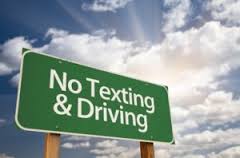
Other Articles of Interest:
- A Colorado Comprehensive DUI – DWAI Penalties Sentencing Chart
- 2017 Colorado Case – Proves Once Again – Never Talk To The Police!
- Colorado DUI Law – DUI Probation Violations – Revocation Of Probation
- Colorado Vehicular Assault – Vehicular Homicide Charges – What They Mean
- A Guide To The DMV Side Of Colorado DUI Cases Part I Of IV


